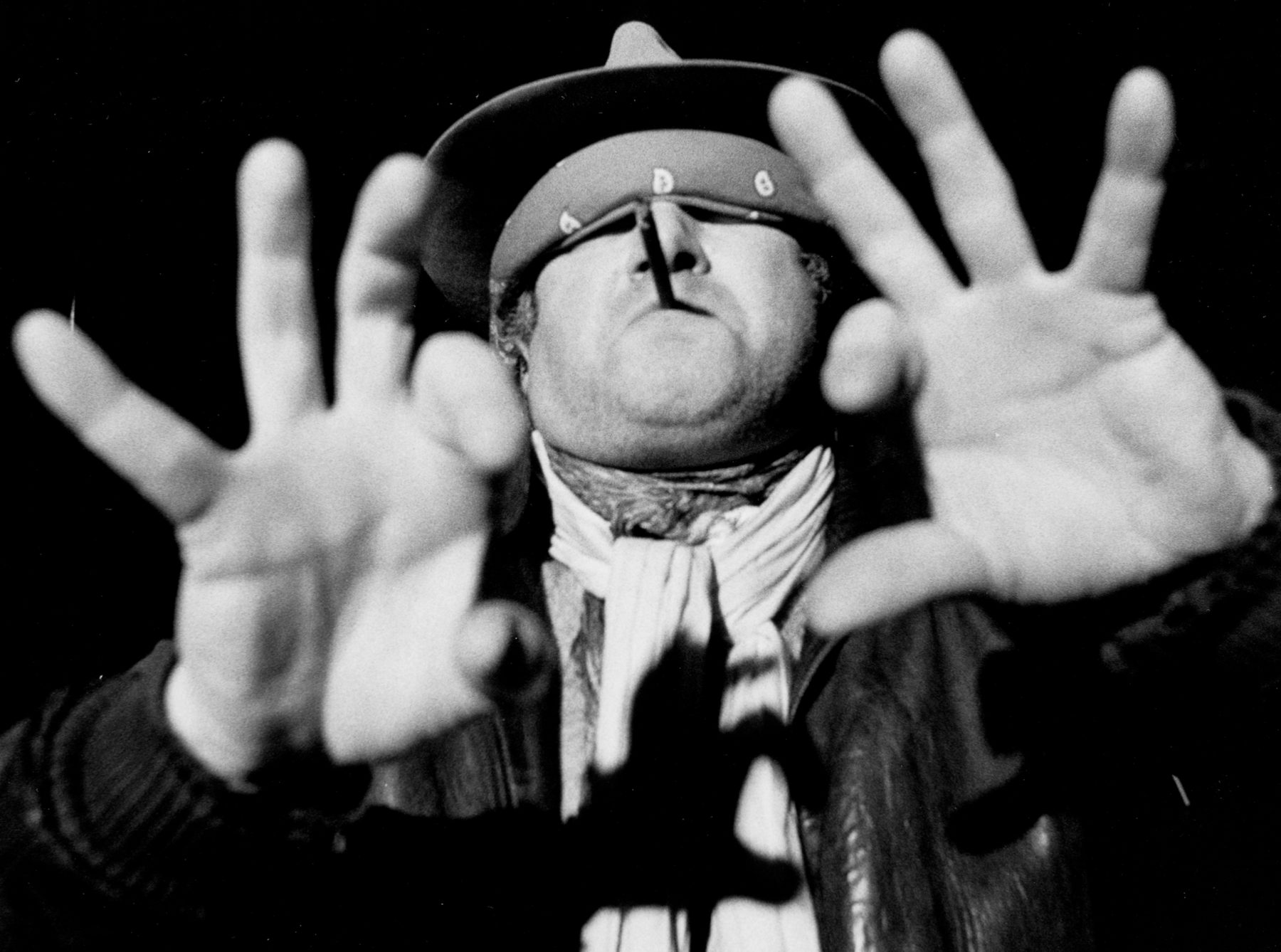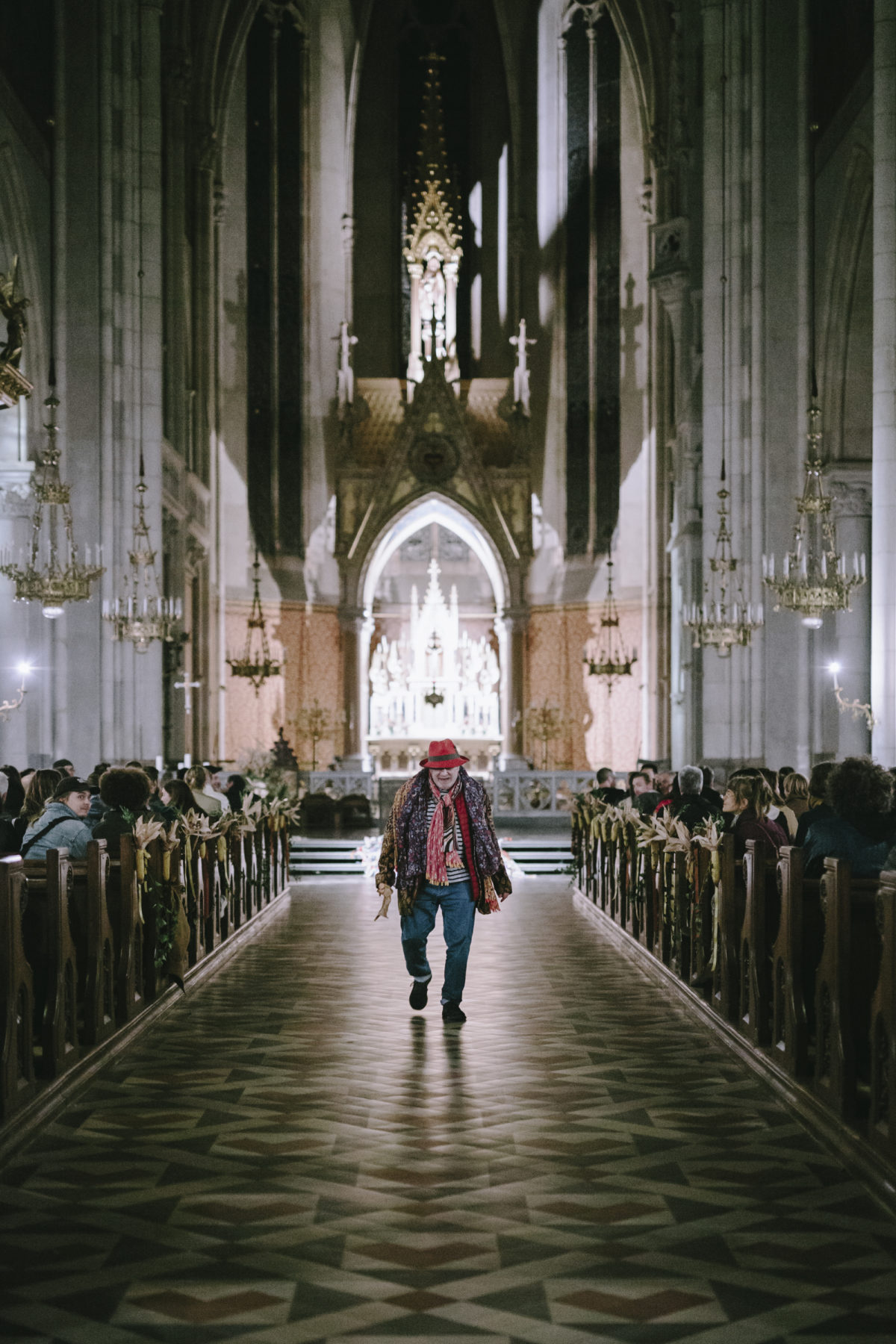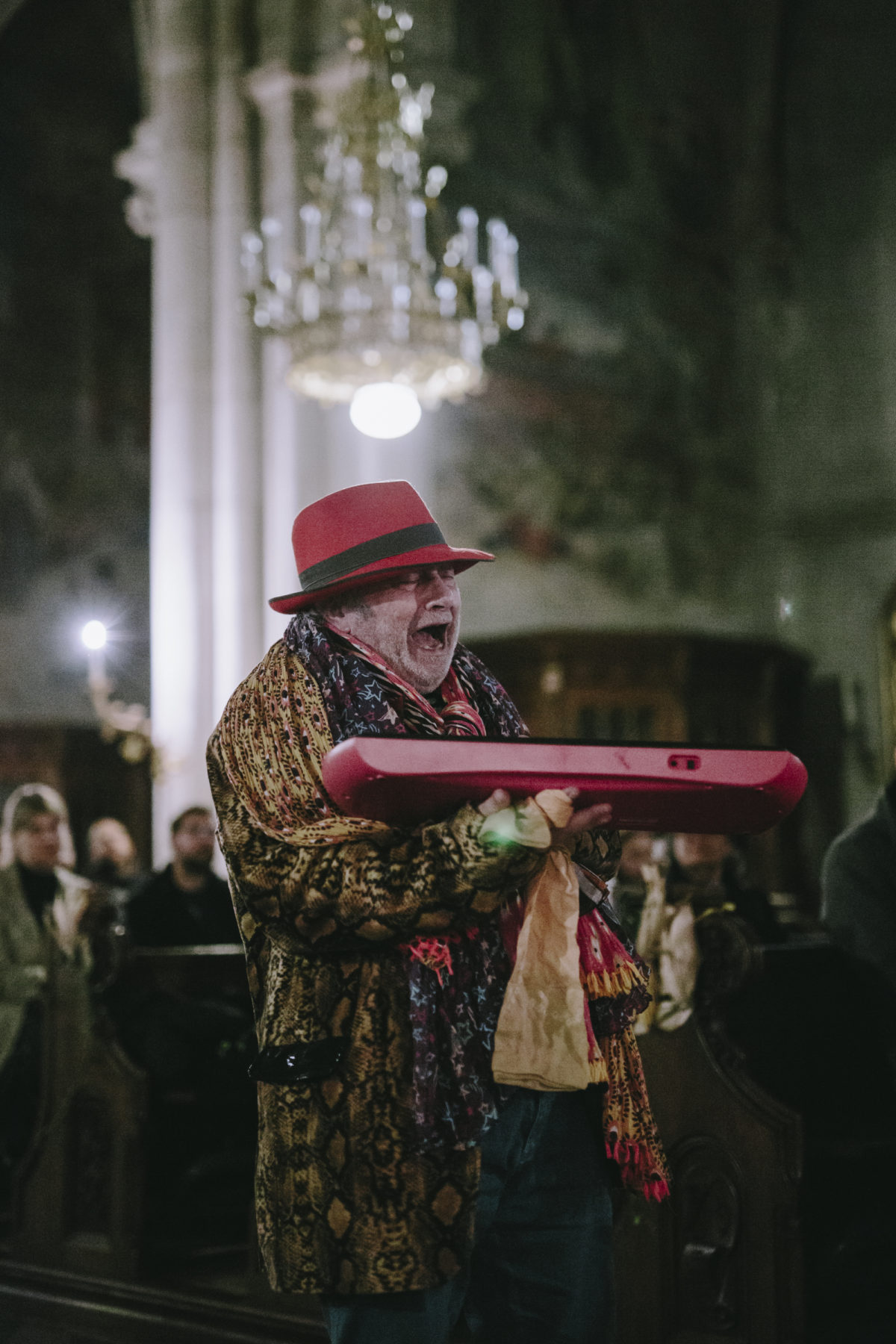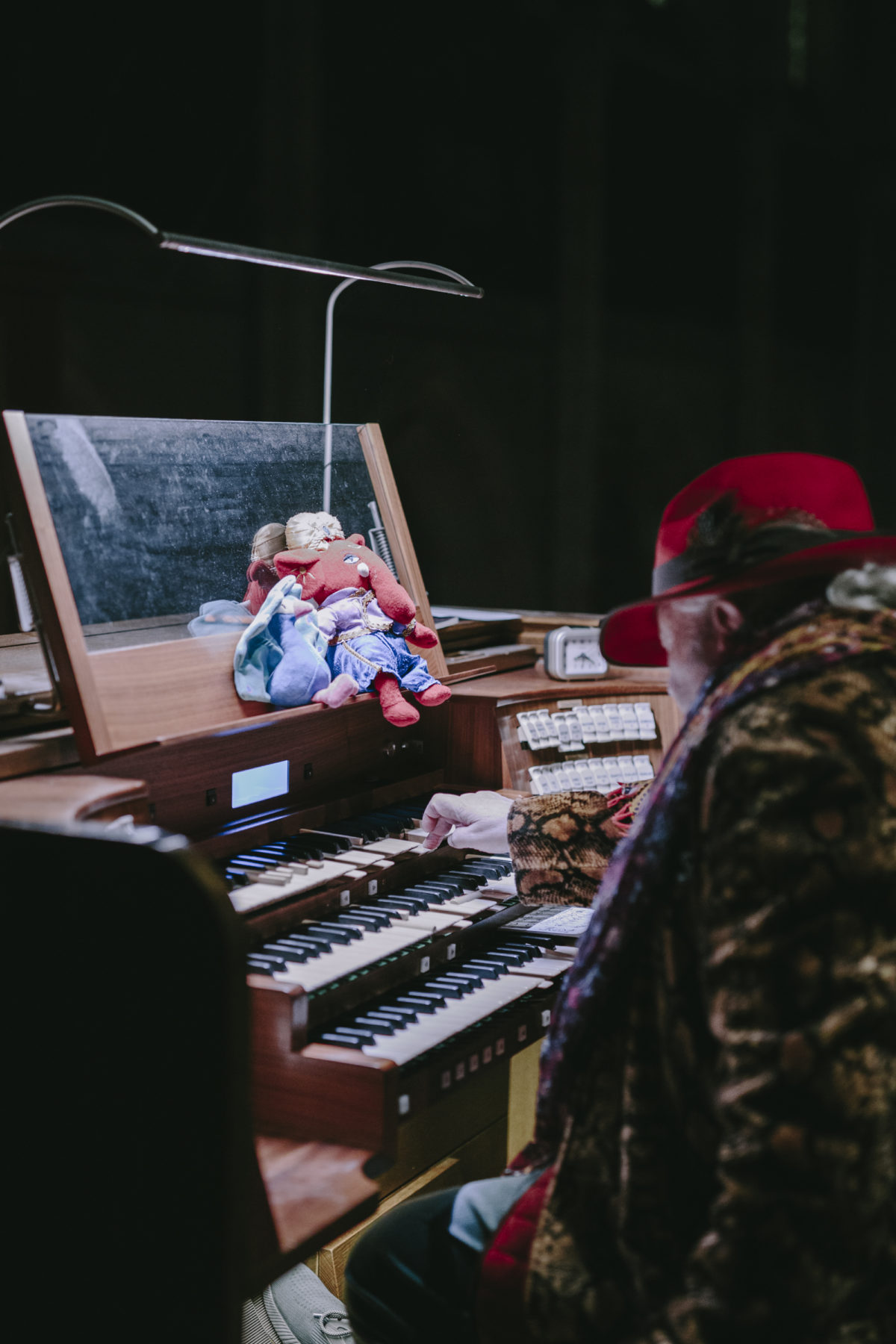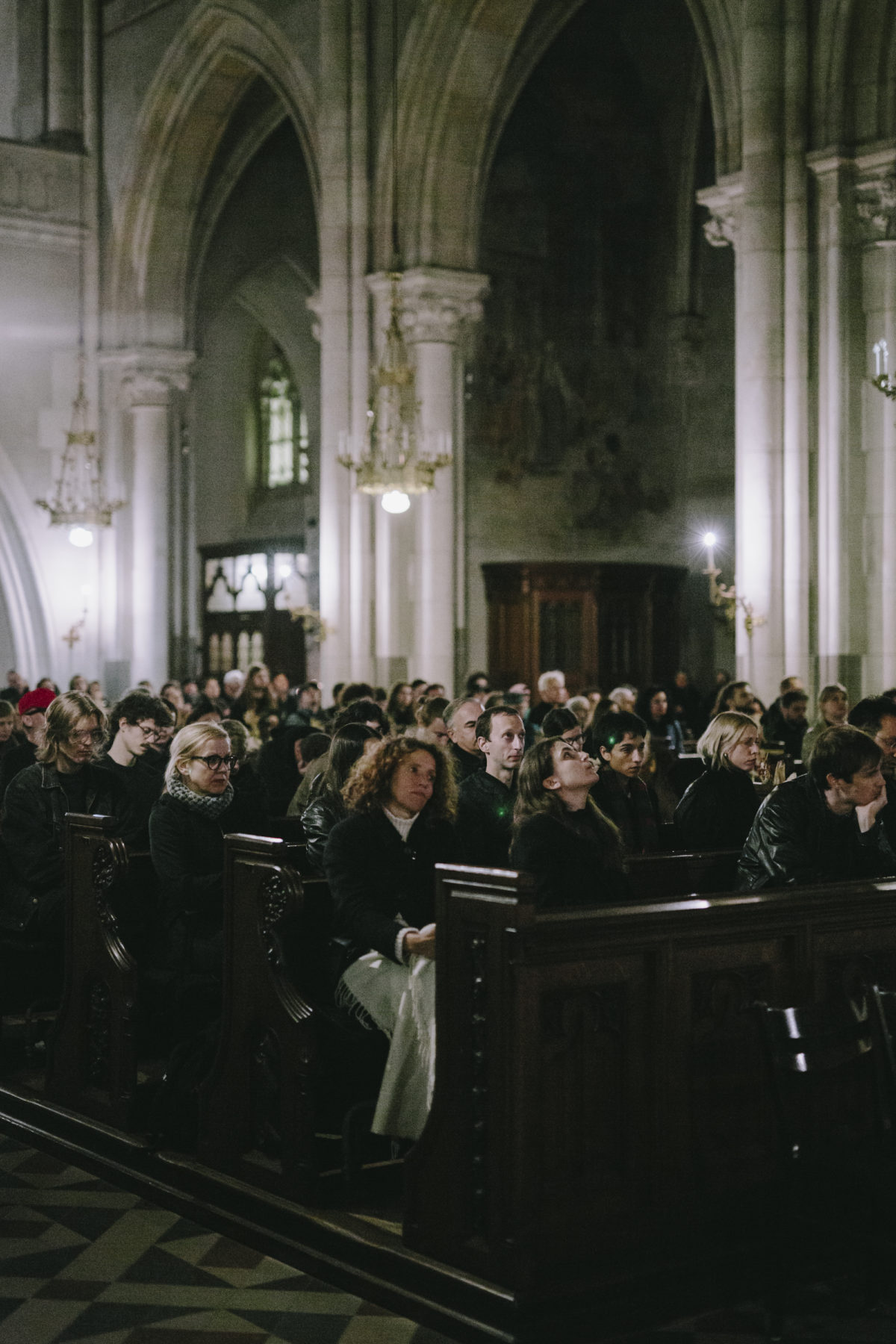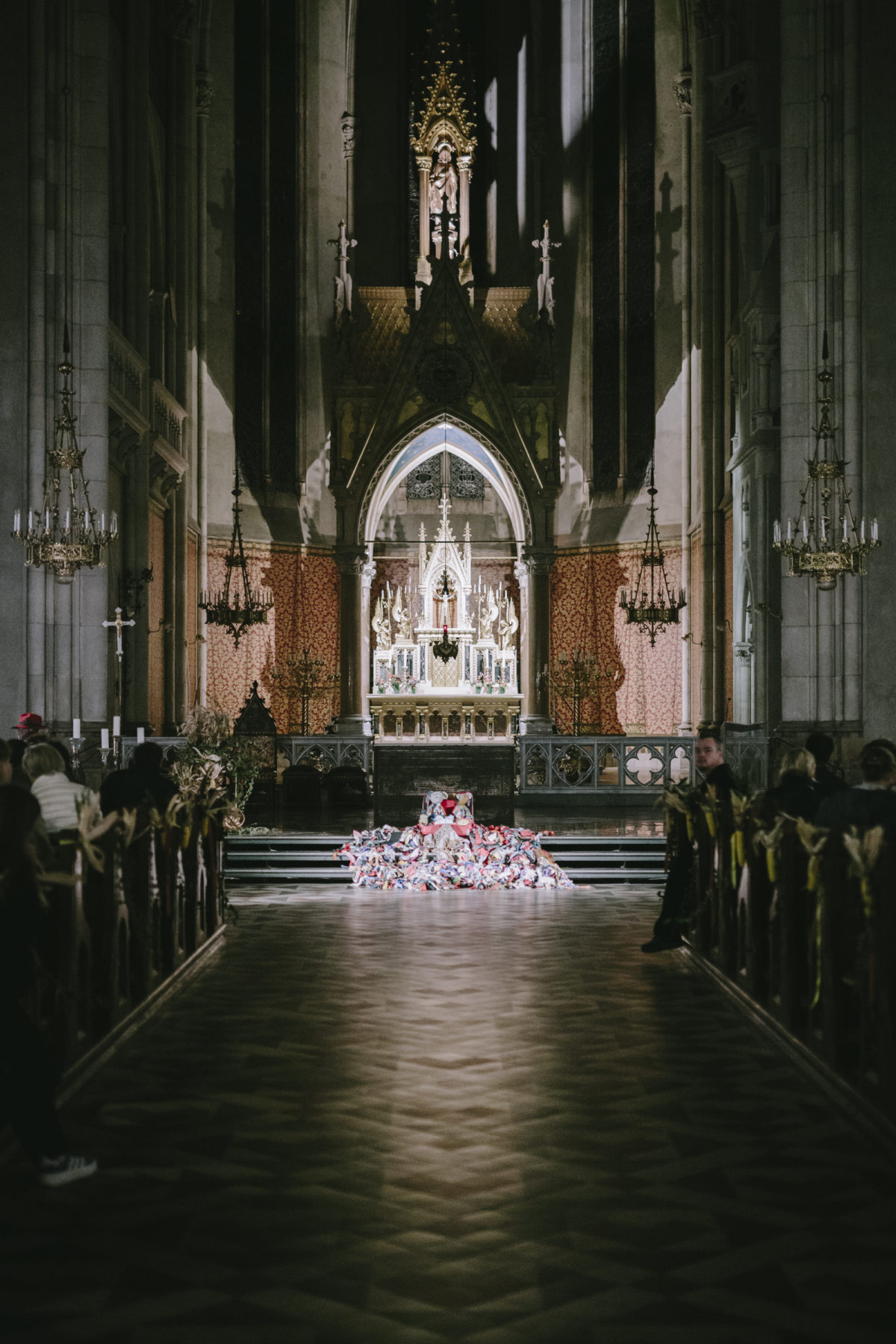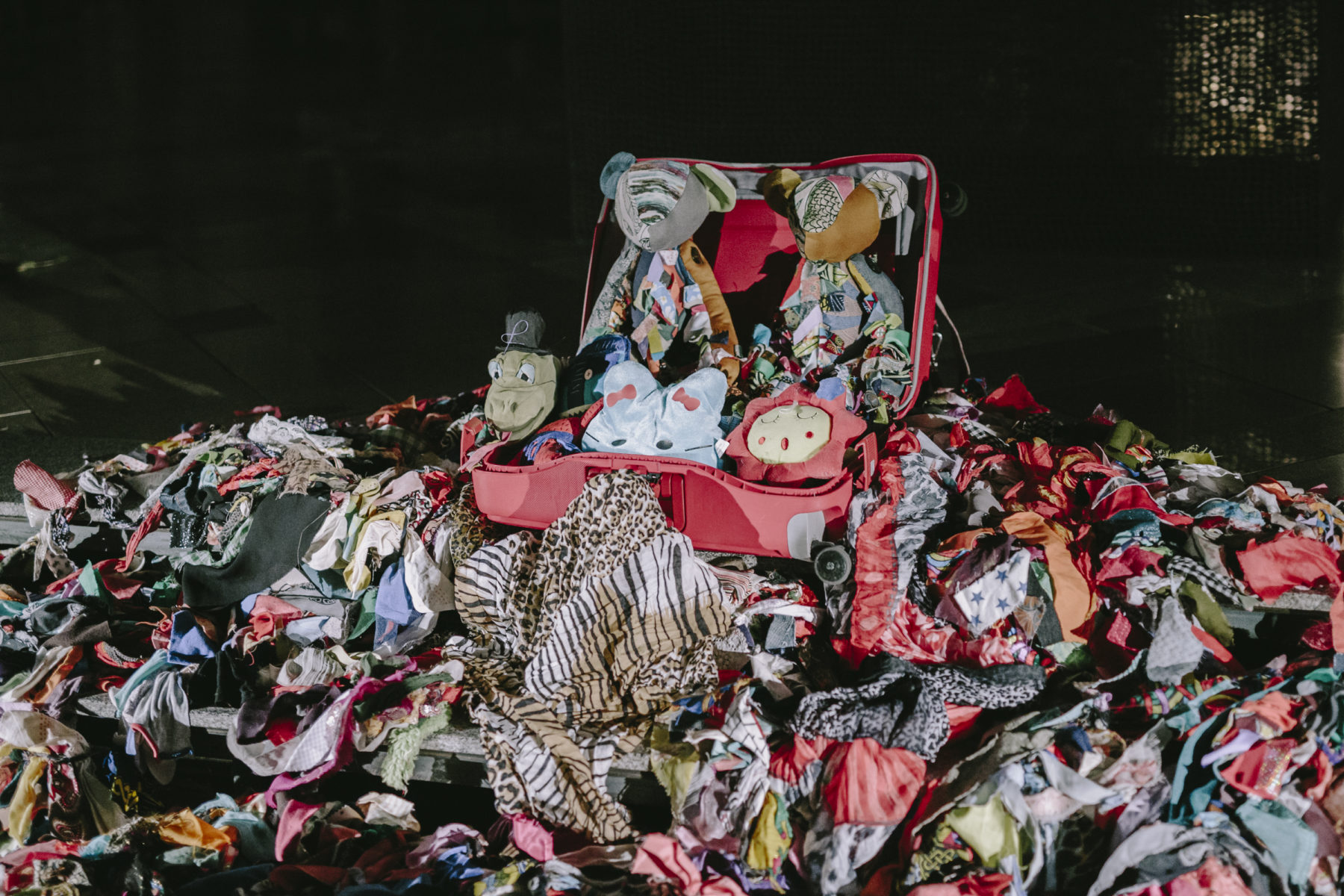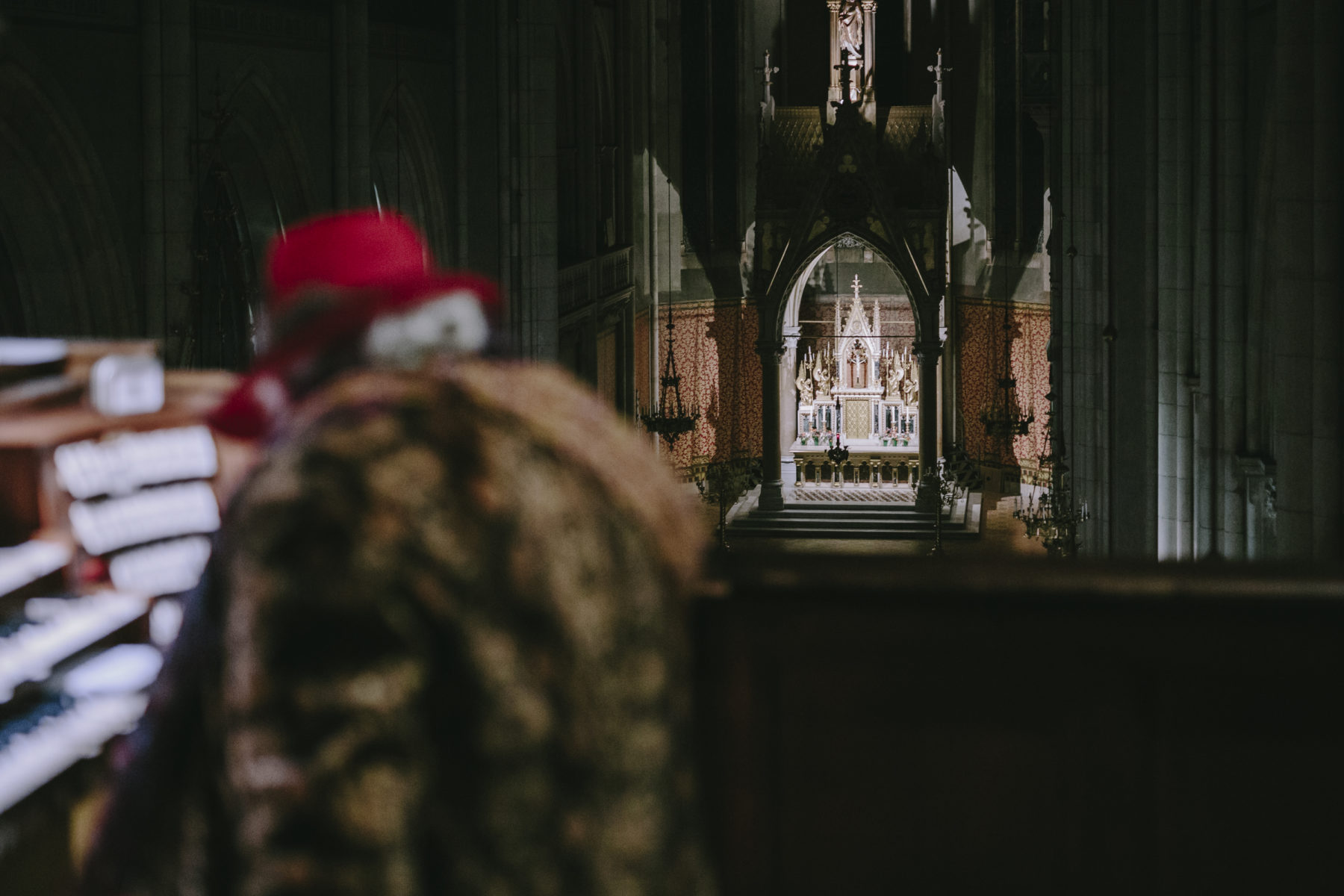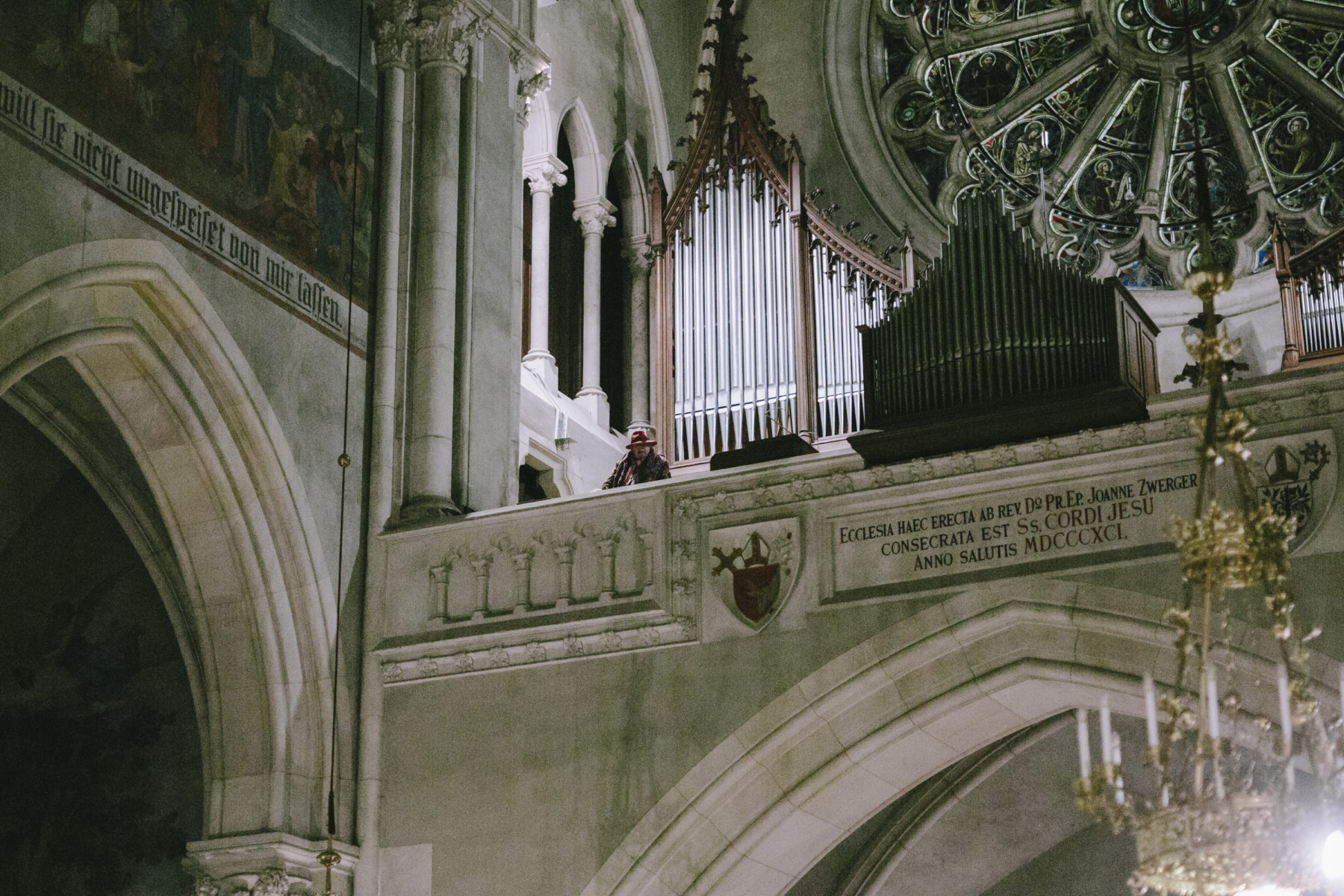grazerkunstverein
(Concert)
Schlingen Blängen
Charlemagne Palestine
23/10/2024, 20:00, Herz-Jesu-Kirche Graz, Free admission
Schlingen Blängen is a seminal composition by the American artist and composer Charlemagne Palestine, first conceived in the late 1970s, that has continuously evolved over the decades. At its core, the piece explores the vast sonic possibilities of the organ, transforming it into a resonating body of layered, immersive sound. Through the use of long, sustained tones and gradual, almost imperceptible shifts in harmony, Schlingen Blängen creates a hypnotic, meditative atmosphere that invites listeners to lose themselves in the interplay of sound and space.
Performed on site-specific organs, each rendition of Schlingen Blängen becomes a unique encounter between the music and the architecture of the setting. The organ’s capacity for deep, resonant tones and delicate overtones is paired with the natural acoustics of the space, with sound reverberating off walls and ceilings, turning the venue itself into an instrument. Palestine’s approach to composition, focused on repetition and slow evolution, heightens the sensory experience, immersing listeners in a sonic environment where time seems to stretch and shift.
Palestine’s unique approach to the organ involves merging the varied timbral registers of a traditional church or theater organ in a continuous search for what he calls the “Golden Sound.” Through his distinct continuum key prolonging technique, Palestine sustains and layers tones, allowing him to create a vast range of nuances in the organ’s timbres. The result is a massive, magical sonorous storm cloud of sound that vibrates and interacts with the architecture of each space, making every performance a singular experience of complex and evolving textures.
In the context of Josef Dabernig’s exhibition Lacrimosa, Schlingen Blängen underscores the central role of organ music in Dabernig’s recent works. The performance celebrates the beginning of the exhibition’s second chapter and echoes the thematic exploration of ritual, memory, and transformation present throughout Dabernig’s films, while simultaneously standing as a testament to Palestine’s engagement with the spiritual and acoustic dimensions of the organ.
CHARLEMAGNE PALESTINE (b. 1947, Brooklyn, NYC) is a sound artist, composer, performer, and video and installation artist based in Brussels. A contemporary of Philip Glass, Terry Riley, Phill Niblock, and Tony Conrad, Palestine has been creating intense, ritualistic, continuum music for electronic sound sources, bell carillons, pipe organs, pianos, voice, and other keyboard instruments since the 1960s. Originally trained as a cantor and later a carillonneur, he is a composer-performer who always performs his own works as a soloist. Among his first key works are his electronic continuums and his sonority explorations, referred to as Golden Sonorities. Other notable works include his continuum form Strumming Music, the two-hour sound performance Karenina, and Schlingen Blängen, a sonic continuum form for pipe organs that he has been continuously developing since the 1970s. Palestine stopped performing in the early 1980s and until the mid-1990s, devoting himself entirely to creating plush animal divinity altars as multi-media sculptures and installations. These altars are often an integral part of his performances. Since his return to performing, Palestine has reissued works from the 1960s and 1970s on CD and vinyl and has performed and exhibited internationally. Notable recent performances include illlummminnnatttionnnsssss!!!!!!! with Simone Forti at MoMA, New York City, and The Louvre, Paris (2014); STTT THOMASSS ‘’’’”‘”DINGGGDONGGGDINGGGzzzzzzz ferrrr TONYYY’’’’’’’ , organized with Blank Forms and performed at St. Thomas Episcopal Church, New York City (2017); as well as his participation in the 2014 Whitney Biennial, presenting Stairway Song, a site-specific twelve-channel sound installation. Exhibitions focusing on his sculptural and musical work include Voodooo at WIELS, Brussels (2010); GesammttkkunnsttMeshuggahhLaandtttt at Kunsthalle Wien (2015) and Kunstinstituut Melly, Rotterdam (2016); Bibbidi-Bobbidi-Boo at Meredith Rosen Gallery, New York City (2023); and Post Scriptum: A museum forgotten by heart at MACRO, Rome (2024).
01Charlemagne Palestine, Battling the Invisible, 1995. Photo: Irene Nordkamp. Courtesy of the artist.
02Charlemagne Palestine, Schlingen Blängen, 2024. Grazer Kunstverein, 2024. Courtesy of the artist and Grazer Kunstverein. Photo: Sebastian Reiser
03Charlemagne Palestine, Schlingen Blängen, 2024. Grazer Kunstverein, 2024. Courtesy of the artist and Grazer Kunstverein. Photo: Sebastian Reiser
04Charlemagne Palestine, Schlingen Blängen, 2024. Grazer Kunstverein, 2024. Courtesy of the artist and Grazer Kunstverein. Photo: Sebastian Reiser
05Charlemagne Palestine, Schlingen Blängen, 2024. Grazer Kunstverein, 2024. Courtesy of the artist and Grazer Kunstverein. Photo: Sebastian Reiser
06Charlemagne Palestine, Schlingen Blängen, 2024. Grazer Kunstverein, 2024. Courtesy of the artist and Grazer Kunstverein. Photo: Sebastian Reiser
07Charlemagne Palestine, Schlingen Blängen, 2024. Grazer Kunstverein, 2024. Courtesy of the artist and Grazer Kunstverein. Photo: Sebastian Reiser
08Charlemagne Palestine, Schlingen Blängen, 2024. Grazer Kunstverein, 2024. Courtesy of the artist and Grazer Kunstverein. Photo: Sebastian Reiser
09Charlemagne Palestine, Schlingen Blängen, 2024. Grazer Kunstverein, 2024. Courtesy of the artist and Grazer Kunstverein. Photo: Sebastian Reiser
10Charlemagne Palestine, Schlingen Blängen, 2024. Grazer Kunstverein, 2024. Courtesy of the artist and Grazer Kunstverein. Photo: Sebastian Reiser
